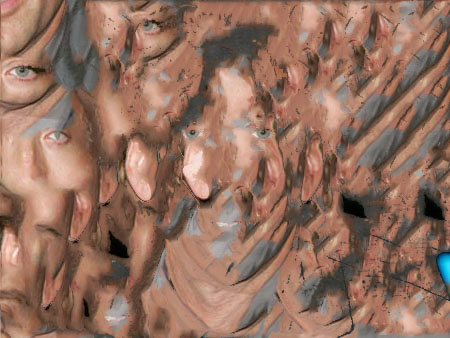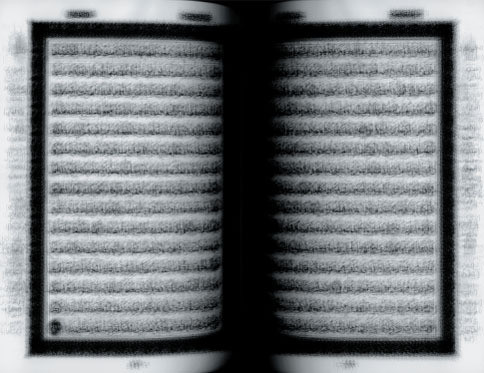Hello again after a little bit. Question: what would you say is the best post ever published here at HTMLGIANT? Feel free to nominate more than one post (and include a link if you can).
In a week or two, I’ll post a follow-up tabulating the top choices. Which won’t mean anything, necessarily, but might be fun to look at.
14 hands at the neck of the creature
1. This flash by Shellie Zacharia is one of the best I’ve read in a goodly while.
14. For you glazed and sootstreaked aspiring MFA/MA folks, Cathy Day writes some do’s and don’ts concerning the Statement of Purpose. Good stuff here, and made me realize (I read grad apps) most applications are very similar–they DO a lot of these DONT’S.
2. Hey, all you Slaw-Cheeks, you know what: The brouhaha over Markham’s wholesale cribbing of other writers’ work is an instructive reminder of how rarely ‘original writing’ actually is.
 3. Have you experienced “Fire Island Sideshow” by Jon Cotner and Claire Hamilton?
3. Have you experienced “Fire Island Sideshow” by Jon Cotner and Claire Hamilton?
- In Fair Harbor we hear a Yorkie growling frantically. Gary always holds Brutus’ leash because last summer Brutus was almost killed by the high tide. This gets difficult around New York City, where law requires that human beings walk dogs. But Gary won’t let people near Brutus.
4. Dude writes stories that are Facebook updates.
5. I know, why don’t we all comment about what we are thankful for?! Really? Me neither. Fuck off.
Obituary: Deer

Deer (1350 AD – November 22, 2011 AD) — Deer dropped dead of exhaustion this morning after a celebrated career as a poetic muse, chapbook cover model, ambassador for the bands Deerhoof, Deerhunter, Antler, Deer Tick and Deer People, and beloved 2-term mayor of Etsy–from which he launched a tote bag endorsement deal. Deer is reported to have had identity struggles lately, exhibiting bizarre behavior, including attempted arson of a microbrewery and allegedly asking a group of poetry MFA students “How many of you bastards actually encounter deer on a regular basis?” — in response to which one of them handed him a limited-edition letterpressed broadside. Deer is survived by wolf, bear, tree, squirrel, fox, sparrow and owl. Memorial services will be held in Amherst, Portland, Oakland, and of course, Brooklyn.

Seen here with friends in happier times.
Midtown Skin Essay Series Part 2 of 5: Hedge Fund

Hedge Fund
It’s ten AM, do you know where your money is? Who touches your credit? Who makes it feel safe? Touching candy, scraping paper skin over the fires of the market, these are the goals of the new new Downtown set. These are the men and women who give your money value, who quantify your life growth. They deal your commodity. They are the men and women who take your life and make it fabulous.
She whispers to money before she dreams, in her loft Downtown. Money takes her to bed. She kisses her own power like an empty vase
On the other side of the world, in New Jersey, money begins to seek power. It begins to roll in the direction of Wall St. It divests itself from your retirement plan. Money wants to be in Manhattan. Money wants to be strong with sexy friends, cigars, power boats. A vacation for money would be a week on the beach at Battery Park, in the 1980s, during the bond market boom. Your money wants to merge, to kill. Your kids go off to college, your money goes off to war.
And now your moeny has gone digital – just like your love life. Your money is dating your iPhone. Your money is fucking your second wife in the back of a Towncar. Every morning at 9:30 AM Eastern, your money sits at a Bloomberg terminal and watches itself breathe.
You can’t have your money now. It belongs to math and it belongs to disappearing mental real estate – the headline market, the gold hedge, the metals sector. Your money is bored by you. Your money is long gone – blowing lines of coke in some Russian death bar with the twin daughters of a brand new oil baron. Say goodbye to your money.
Previously: Happy Hour
how to snort an owl

For many years my doctor has prescribed owls to me in pill form to help me cope with the mental disorder of my personality. He said, “Swallowing owl pills will help you not suffer as much attention-deficit hyperactivity disorder. Owls are composed of a number of amphetamine salts that are thought to increase the amount of dopamine in the brain. Like many stimulants owls affect the area of the brain that controls the amount of rewards or pleasures you are capable of feeling. Sometimes after I ingest an owl I experience a psychological positive value that is beyond any positive value I have ever experienced from the natural pleasure systems of eating, drinking, fighting, or doing sexual movements. Recently, I have been under a lot of stress. My throat has been really dry and it has been very difficult for me to swallow the full grown owls my doctor has prescribed. As a result, I’ve had to develop a new system of ingestion that involves snorting the owl. READ MORE >
Blog Is Still a Four-Letter Word

Monday morning. Cold cat-nose, green tea, sleepy checking of email. Among the messages, one from my workshop leader, asking if I could stop by her office to talk before class.
Back up, explain: I’m a brand-new, first-semester PhD student in a creative writing program. I’m a poet; I’m a woman; I’m forty-two. And I moved to this city exactly three months ago to start the program. It was an astonishing stroke of good fortune to get accepted, and I was deeply excited to move here and to do good work. But I’d be lying if I didn’t say that these three months have felt pretty much like trying to drink from a firehose.
That’s okay—that’s how it is when you’re somewhere new. New city, new acquaintances, new university bureaucracies and departmental eccentricities. A new roomful of bright undergraduate faces staring up at me three mornings a week. It’s a struggle to adjust, but as more or less a career academic (in the sense that I career among institutions, jostling back and forth around and between them), I’m used to transitions and I’ll be here for the next five years. I’m a little daunted, but not too badly. I may weeble but I don’t fall down.
Nonetheless when my workshop leader asked me to come chat with her, I was grateful. I knew she’d met one-on-one already with the other members of the class to discuss their writing; they said she’d been extremely helpful and frankly I kind of felt like I needed some extreme help, to get through the whole drinking-from-a-firehose part of the experience. I felt optimistic about maybe getting a dab of reassurance from her—that thin trickle of validation that lets you know there’s some point in continuing the effort.
Imagine, then, if you will, my surprise. READ MORE >
Beecher’s and the Game Narrative
Perhaps it is a reaction to the interactive time we live in—where video games and the Internet create portals to different worlds, where we control the x,y,z—but Beecher’s, in its inaugural issue, has curated, whether they are aware of it or not, a small collection of fiction and poetry that exist in two places: a realm of narrative and that of the participatory game.
The first, striking example of the journal’s interactive nature is the design. That point may seem self evident—you interact with the journal as you would with any other book—but there is something more to Beecher’s. The pages are porous. They absorb dirt, fingerprints, and oil. The binding is loose. When it is in your grasp, you are handling something precious, an antiquity. A person like myself, who believes in the preservation of items, finds that holding the journal, attempting not to damage it, is a thoroughly conscious process.
The journal being physical as opposed to electronic means you can’t click links in Beecher’s as you would in a hyper-text journal. The writing has to works harder to to encourage reader interaction. Here is where the journal begins to push real boundaries.
In Rebecca Wadlinger’s poem, “Mrs. Mayfield and the Museum of Bodies,” the narrator touches statues and paintings in an unnamed museum under the suspicious gaze of a security guard. When the guard blinks, the narrator/poet sneaks a touch. The guard, by the end of the poem, is so worn down by the narrator’s persistence that he allows her to interact with the art, finally, as she truly desires.
Cohen’s “The Rules (Gulf Version),” is a set of game rules which informs the reader that any number of people may participate in the game/narrative, as long as they are human like you and me. But, for practical purposes, the participants in the game must “exceed one”, drawing the reader into the “game.” During my interaction with the story, I was forced to wonder whether I was playing a game with the author, or with the characters of the story. Either way, a dead body became a heavy load at the end of the story, requiring redemption and resuscitation that only I, as the reader and participant in the game, could supply. READ MORE >
(Eggs and Bacon): The Poem as Memoir?

What is memoir in poetry? We read prose memoirs and see how lives are stretched taut around themes: a chronology of water, a debilitating illness, a drug addiction, a nomadic childhood, a strange religion, insomnia-driven thinking. Themes become umbrella girding; living, the fabric that fills it out. But where does poetry fit into memoir? We could think about the confessional in poetry and say, yes this is the place where poetry and memoir meet. Plath on suicide attempts: “I have done it again. / One year in every ten / I manage it–” or Lowell, “My mind’s not right…I myself am hell.” Depression and mania are easily encapsulated states of being, but all poets write their lives, confessional or not. When Simic writes, “My mother was a braid of black smoke,” we assume he’s not writing fact-truth. Maybe he’s writing dream truth or metaphor truth. Maybe he’s just writing, and I’m extrapolating.
I started thinking about this when a poem of mine called “Man Builds a Guitar” went up online recently. It’s basically a persona poem in Jack White’s voice. I wrote it after watching the documentary It Might Get Loud and not being able to shake Jack White’s weird tinkering and instrument making from my head. So, it’s a persona poem, but it embodies themes and emotions I was thinking about at that particular moment in time. When I say, “I heard everything disappearing” what I meant was that my marriage was over and life as I knew it was evaporating in front of my eyes. I’m using the imagery of my childhood in the South and the sounds that take me back there to get at the particulars of silence-after-a-storm. This is a memoir poem even though it’s a persona poem. I mean, I don’t know Jack White, but I know me.
Matt Hart has a poem called “Sailing the Gut Boat,” that begins, “I made you a thing with no tongue / and gallons of new-fangled fog. I made you / a thing with nothing and nobody—not even / a surrealist screaming into an atlas….” Hart reminds us that you can fashion people and events into whatever you want (a nothing, even) on the page, but the truth of them still remains behind that fashioning.
Or take a short couplet poem, “Future,” by Emily Kendal Frey:
To Afford Polyvalence
In Spheres III, I attempt to explain why we should not only purge the two portentous words revolution and mass from our vocabulary, but also the concept of “society.” It suggests a coherence that could only be achieved by violent asserting conformism. The conglomerate of humans that has, since the 18th century, called itself “society” is precisely not based on the atomic dots that we tend to call individuals. Instead, it is a patchwork of milieus that are structured as subcultures. Just think of the world of horse lovers—a huge subculture in which you could lose yourself for the duration of your life but which is as good as invisible if you are not a member of it. There are hundreds if not thousands of milieus in the current social terrain that all have the tendency from their own viewpoint to form the center of the world and yet are as good as nonexistent for the others. I term them inter-ignorant systems. And, among other things, they exist by virtue of a blindness rule. They may not know of one another, since otherwise their members would be robbed of the enjoyment of being specialized members of a select few. In terms of their profession, there are only two or three types of humans who can afford polyvalence in dealing with milieus. The first are architects who (at least virtually) build containers for all; the second are the novelists, who insert persons from all walks of life into their novels; finally come the priests who speak at the burials of all possible classes of the dead. But that is probably the entire list. Although, no, I forgot the new sociologists à la Latour.
In other words, the multiple personality on the one hand and the single networker on the other— those are the two options I see open to individualized populations. The way homo sapiens is influenced by the dowry from the days of hording is no doubt insurmountable, but because the explication of that old heritage continues simultaneously in various directions, the proto-social elements of the life of sapiens can be reworked. They lead to an electronic tribalism. In the dyadic motifs, by contrast, the intimate relationships are explicated to such a degree that intimacy can quite literally be played through with the technical media of self-supplementation. In the long run, human types arise that are fairly unlike what we have known to date.
Sunday Service: Mike Lala Poem
Mt. Rushmore Poem
Six thousand pounds of dynamite
for the father of my country.
A chisel for God’s messenger, detained.
A hammer as his cue:
Washington: Bring the money.
Jefferson: It’s soft.
Borglum: Move behind Washington, and Roosevelt, back.
South Dakota: It’s odd here.
Italy: It’s old.
Michelangelo: That’s freedom: a new face in an old place.
Han Solo: I know.
I stood at the rail, put a quarter in, and received my 90 seconds
set aside for detail:
Theodore, sweating,
Tom staring off at the hills.
Abraham, in absentia,
George, chest out.
Susan B. Anthony (at home): All rise for the Federal Boys Club.
Roosevelt (to tourist): Take the fucking photo.
Jefferson (erected): Leave your likeness where they worship.
The stationary viewer clicked closed, and mother
led me to Crazy Horse in-progress. I looked at the mountain,
the face emerging from it, then the plaster mockup
on the boardwalk by the gift shop.
Ziolkowski (on his death bed): Do it slow. Do it right.
He has been honored by the U.S. Postal Service
with a 13-cent stamp.
Michael Lala grew up mostly in the western United States and Tokyo, and studied writing in Michigan. He is the author of the chapbooks [fire!] ([sic] Detroit, 2011) and Under the Westward Night (forthcoming, Knickerbocker Circus New York, 2011), and he curates Fireside Follies, lives, and works in Brooklyn. mikelala.com.

